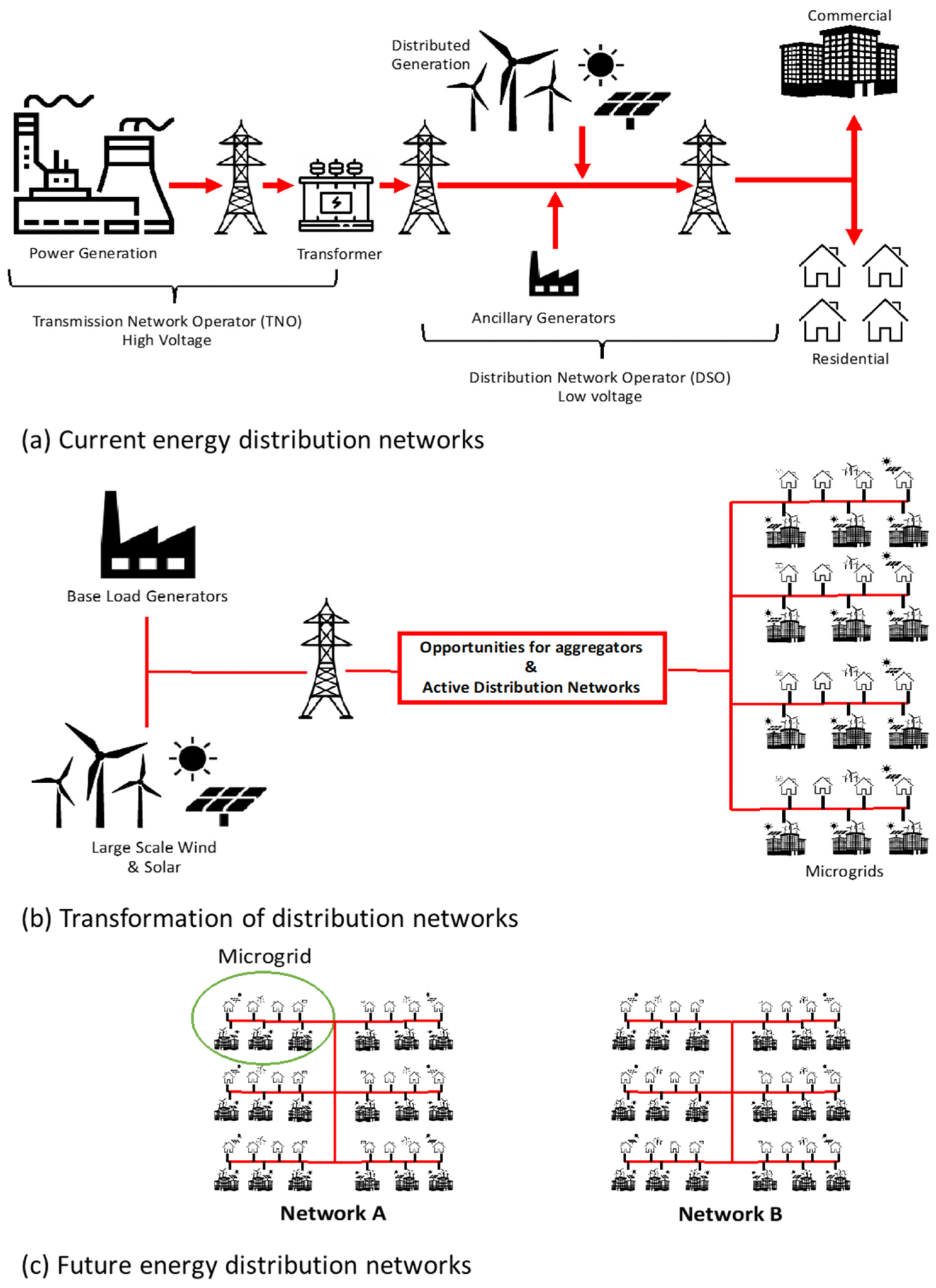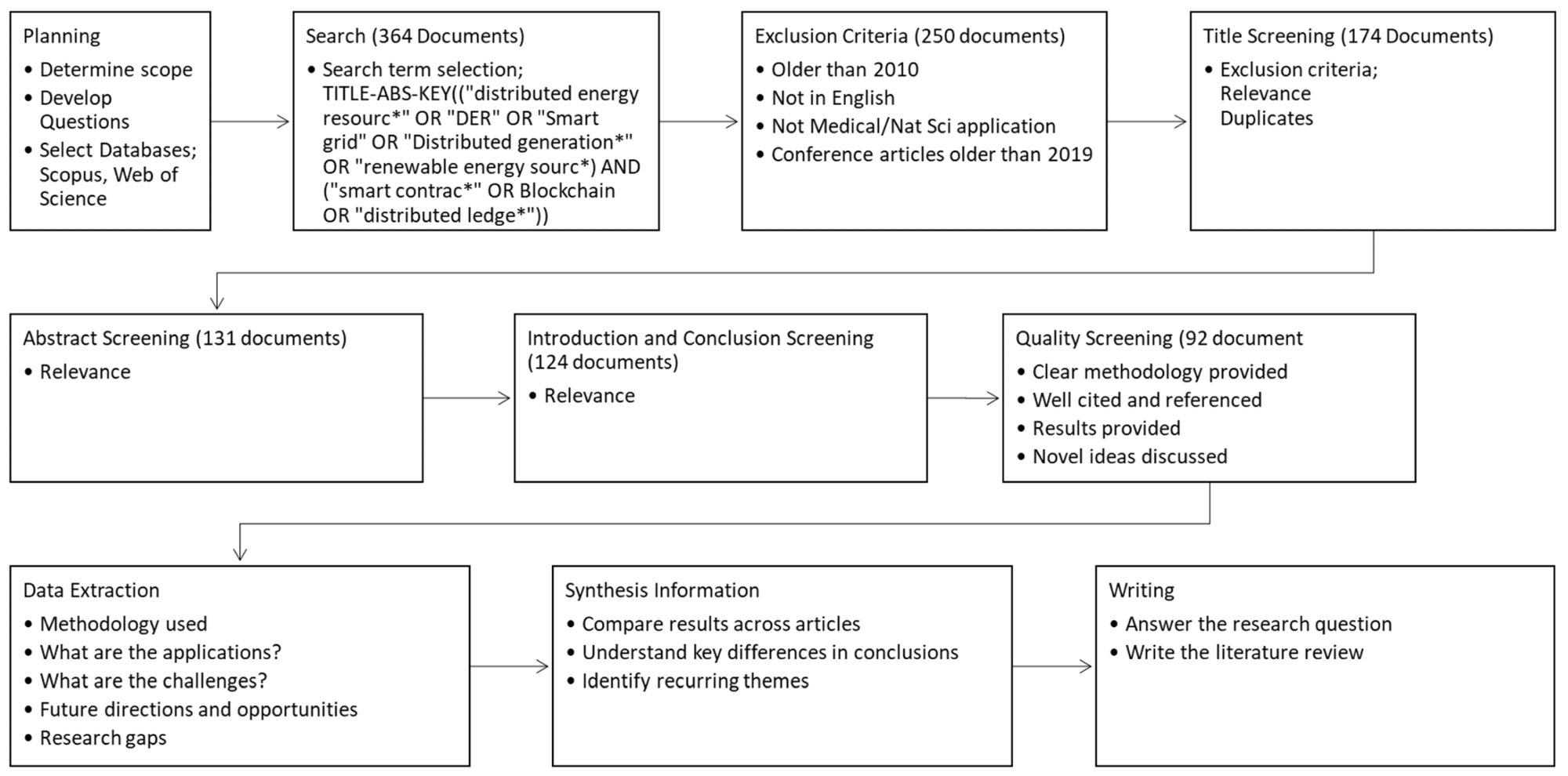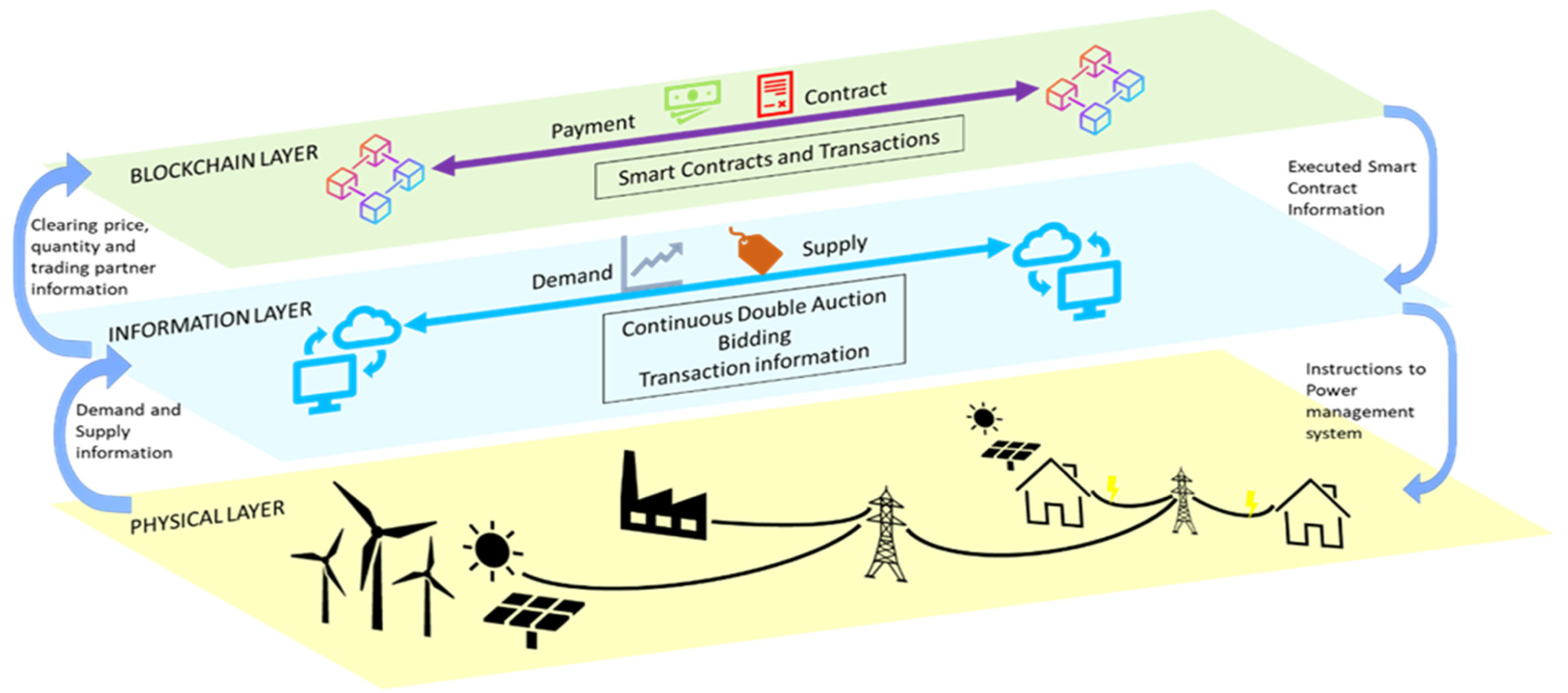Scientists from the University of Cambridge, Tesla, and the University of Strathclyde have investigated the application of blockchain technology to smart grids. Their research has appeared in the journal Energies.

Study: Impact of Blockchain Technology on Smart. Grids. Image Credit: MiniStocker/Shutterstock.com
The Changing Face of Energy Generation in the 21st Century
Rapid global population increase since the early 20th Century has facilitated the need for reliable and efficient energy generation to provide good quality of life for individuals. Progress in modern society and industry is intrinsically linked with fossil fuel exploitation, which is becoming increasingly unsustainable due to climate change and resource depletion.
Transitioning to a low-carbon economy is a key area of discussion in the 21st Century, and the recent energy crises due to geopolitical and economic instability have focused the attention of researchers, industry, and governmental bodies on alternative solutions to meet the growing demands of the modern world.
In the EU, aggressive targets have been introduced which aim to produce 100% of the area’s energy generation capacity from renewable sources, with an interim aim for renewables to provide 32% of energy needs by 2030. However, there are several key technical and infrastructure challenges that need to be overcome in order to transition to a net-zero carbon economy whilst ensuring access to reliable energy.

Transformation of the distribution network. Image Credit: Khan, H & Masood, T, Energies
Decentralized Grids: A Future Solution to the Energy and Sustainability Crisis?
Currently, national energy grids are mainly centralized, with a small number of producers and distributors supplying electricity to commercial and domestic consumers. Ancillary systems provide back up in case of emergencies such as power outages to balance the grid as and when they are needed.
However, the ongoing geopolitical situation and historical crises, such as the oil crisis in the 1970s, have demonstrated the fragility of centralized power supply and the disastrous knock-on effects on society and the global economy. The critical nature of reliable and low-cost energy supply has led researchers, companies, and governments to explore decentralized energy grids.
In a decentralized grid, there are multiple buyers and sellers, with numerous microgrids supplying consumers and prosumers. However, to transition to a fully decentralized, sustainable, and green grid with numerous smart elements, there are many regulatory and technical challenges that need to be overcome at multiple levels by actors in the energy industry and associated sectors.

The methodology followed to conduct this systematic literature review. Image Credit: Khan, H & Masood, T, Energies
The Paper
The new research in Energies has explored the application of blockchain technology in proposed smart grids. Blockchain is a disruptive technology that is playing an increasing role in many industries and sectors, most notably the global finance system, where it powers cryptocurrencies such as Bitcoin and Ethereum.
Blockchain technologies are based on the concept of decentralization and use a distributed database, also referred to as a 'ledger', to digitally store information and provide provenance information for transactions. One of the benefits of blockchain is the fidelity and security of data contained in the ledger without the need for a third party to generate trust. Data is stored in a chain of “blocks,” hence the name, which are linked together chronologically.
The paper has provided a thorough analysis of the potential and current perspectives in the application of blockchain technologies and aims to identify key research areas in this emerging fields of technology. Research gaps and future opportunities have been identified and discussed in-depth by the authors.

A type of blockchain-based decentralized energy distribution system. It can be seen how various areas of research discussed in this article fit together to form a blockchain-based energy distribution system. Image Credit: Khan, H & Masood, T, Energies
Study Findings and Conclusions
A systematic literature review was conducted to identify opportunities and gain a comprehensive understanding of the research question. Four review questions were developed by the authors to guide the review: What are the main areas where the blockchain is being used? What research methodologies have been employed? What challenges are associated with using blockchain for smart grids? Finally, what are the research gaps?
Currently, the application of blockchain technologies in the energy industry for smart grids is limited, with some notable projects like the Brooklyn Microgrid Project demonstrating their potential. There is still a long road ahead until the technology is fully adopted, and several challenges need to be overcome.
Ethereum has emerged as the most popular blockchain technology for smart grid applications, but the authors have noted that this is due to convenience rather than need. Several studies in the current literature have highlighted that blockchain technologies can potentially meet the needs of smart and decentralized energy grids, boosting efficiency and lowering costs.
The review has classified research into four main categories: Electric vehicles, P2P trading, privacy and security, and demand response. Six important research gaps were identified. One main gap highlighted is issues with blockchain technology scalability. Resource and time limitations impact the application of blockchain technologies, especially if large volumes of continuous transactions are required.
One future research opportunity highlighted in the review is the development of more accessible systems based on blockchain technologies. A main concern is privacy and security with smart contract settlements in decentralized energy transaction systems due to creditor’s access to personal information. More accessible systems could help to address this concern and other issues.
Several tools will need to be developed to overcome current challenges with using blockchain technologies in smart energy grids, and there will need to be significant research in this area to help realize its full potential. The new review in Energies has provided a timely and vital overview of the current state-of-the-art in this emerging technological field.
Further Reading
Khan, H & Masood, T (2022) Impact of Blockchain Technology on Smart. Grids Energies, 15(19), p. 7189 [online] mdpi.com. Available at: https://www.mdpi.com/1996-1073/15/19/7189
Disclaimer: The views expressed here are those of the author expressed in their private capacity and do not necessarily represent the views of AZoM.com Limited T/A AZoNetwork the owner and operator of this website. This disclaimer forms part of the Terms and conditions of use of this website.